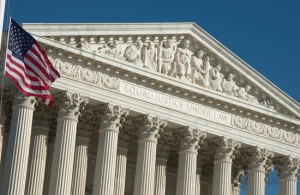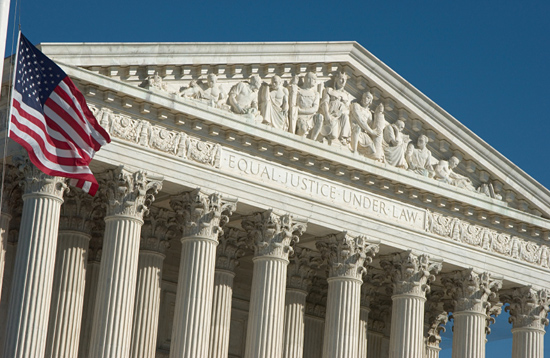 By David G. Savage, Tribune Washington Bureau –
By David G. Savage, Tribune Washington Bureau –
WASHINGTON — Xavier Alvarez told of playing hockey for the Detroit Red Wings, marrying a Mexican starlet, piloting a helicopter in Vietnam and suffering gunshot wounds while rescuing the American ambassador during the Iran hostage crisis. All were lies.
He got into legal trouble, however, when he stood up at a water board meeting in Pomona, Calif., in 2007 and described himself a retired Marine who had received the Medal of Honor. He joined a number of men who lie about their military service and claim medals they did not win. More than one-third of “Who’s Who” profiles that listed top military honors could not be confirmed through military records, a Chicago Tribune investigation found in 2008.
The Supreme Court will take up Alvarez’s case on Wednesday to decide whether the First Amendment protects not just the freedom of speech, but a right to lie about military honors.
Congress enacted the Stolen Valor Act in 2006 to make it a crime to falsely claim a military honor. And Alvarez, once he was exposed, was convicted and fined $5,000.
But his “everyone lies” defense won at the 9th U S. Circuit of Appeals, which struck down the law on free speech grounds on a 2-1 vote. It would be “terrifying,” said Chief Judge Alex Kozinski, if the government’s “truth police” could go after persons for the “white lies, exaggerations and deceptions that are an integral part of human intercourse.”
The Supreme Court is less likely to extend leniency to people who claim credit for honors they did not win. The justices have not ruled before that “knowingly false” statements are protected by the First Amendment.
And government lawyers point out it was already a crime to lie to a federal agent or to make deliberately false statements on government forms. Moreover, the First Amendment does not shield anyone from being sued for telling malicious lies about another person or for getting money by making fraudulent promises.
In defense of the law, U.S. Solicitor Gen. Donald Verrilli Jr. says it “prohibits a narrow category” of false statements that tarnish the special status of military awards. Medals “convey the nation’s gratitude for acts of valor and sacrifice,” he said, and falsely claiming to have won such a medal is not just an inconsequential “white lie.”
The government has history on its side. In 1782, Gen. George Washington ordered the first decorations for valor in battle. He set up a careful process to make sure that awards would go only to the deserving. “Should any who are not entitled to honors, have the insolence to assume the badges of them, they shall be severely punished,” Washington decreed.
But news media groups, including Tribune Co., which owns the Los Angeles Times, warned against allowing the government to decide what kinds of speech can be criminalized. They said news organizations have repeatedly exposed those who falsely claimed to have been military heroes.
The government’s chief problem in the “stolen valor” case may be the series of strong pro-1st Amendment rulings by the Roberts court. In the past two years, the justices have upheld a free-speech right to sell videos depicting cruelty to animals as well as a right to sell violent video games to minors. Protesters were shielded from being sued for carrying hateful signs at a soldier’s funeral, and corporations and unions were given a free-speech right to spend unlimited sums on campaign ads.
Lawyers for Alvarez said his lies, “though surely offensive,” are still protected as free speech. They were “not obscene, defamatory or libelous,” they argued, and did not defraud anyone of money.
They also offered a fallback argument to spare their client. He was a politician, they said, and politicians are known to shade the truth. When Alvarez spoke at the water board meeting, he did so as “an elected official at a public meeting.” They said the 1st Amendment has always given its broadest protection to “political speech.”









